My first hackathon
Written by Alicia
I signed up for the Women Who Code Atlanta Hackathon as a gift to myself. My birthday was two days before. At the time I was almost halfway through a six-month-long coding Bootcamp that was (and still is) kicking my butt. I wanted to prove to myself that I knew enough about coding to build something from nothing.
Day One
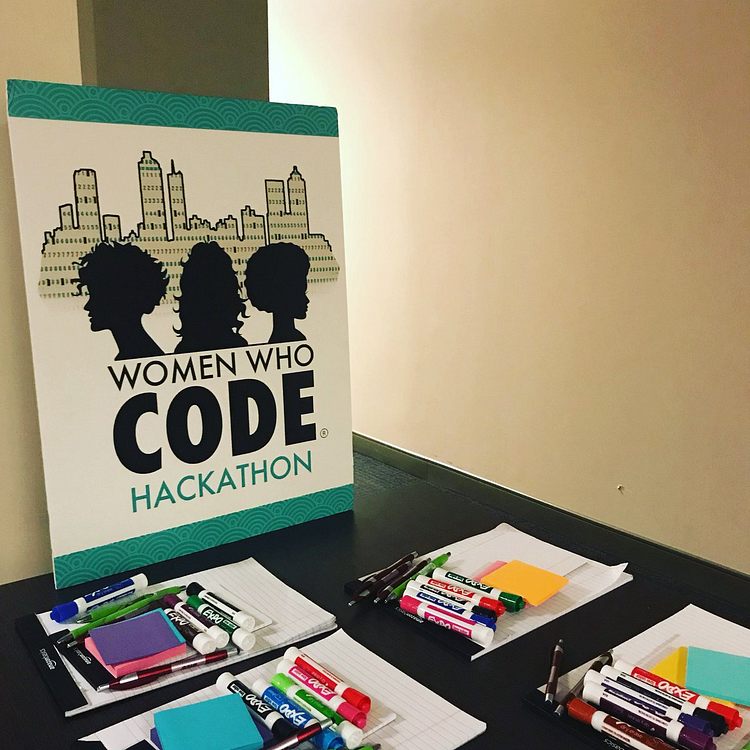
I walked into a busy conference room full of strangers, backpacks thrown on the floor, laptops on tables.
Once everyone was settled, it was time to pitch ideas and join a team. Each idea was written on a large white poster paper and taped to the conference room walls. Those who pitched ideas were clear about their needs. They needed developers. They needed someone with database experience. They needed someone good at math.
Am I a developer? How can I contribute to any of these projects? With minutes left to join a team, I had to drop the self-doubt. I let go of the need to know exactly how I’d help and joined a team with a mission I cared about.
My team
Emily Mattison was one of the women who pitched an idea. Inspired by a book titled Drawdown that offers solutions to reverse global warming, Emily proposed creating a web application that allows users to understand how their daily habits impact the environment. I joined her team because it was one of the most civic-minded pitches at the hackathon.
I stood in a circle with four other women who would make up my team. Emily is a graphic designer and web developer. Katie Brennan is a recent computer science graduate. Naz, a graphic designer and Debby McRae, a systems engineer.
The project
Starting with a blank slate was scary. We wanted to use APIs to grab data and run our own calculations on them. That wasn’t about to happen in two days. By the end of day one, we reset our expectations of what could be accomplished and presentable by Sunday afternoon.
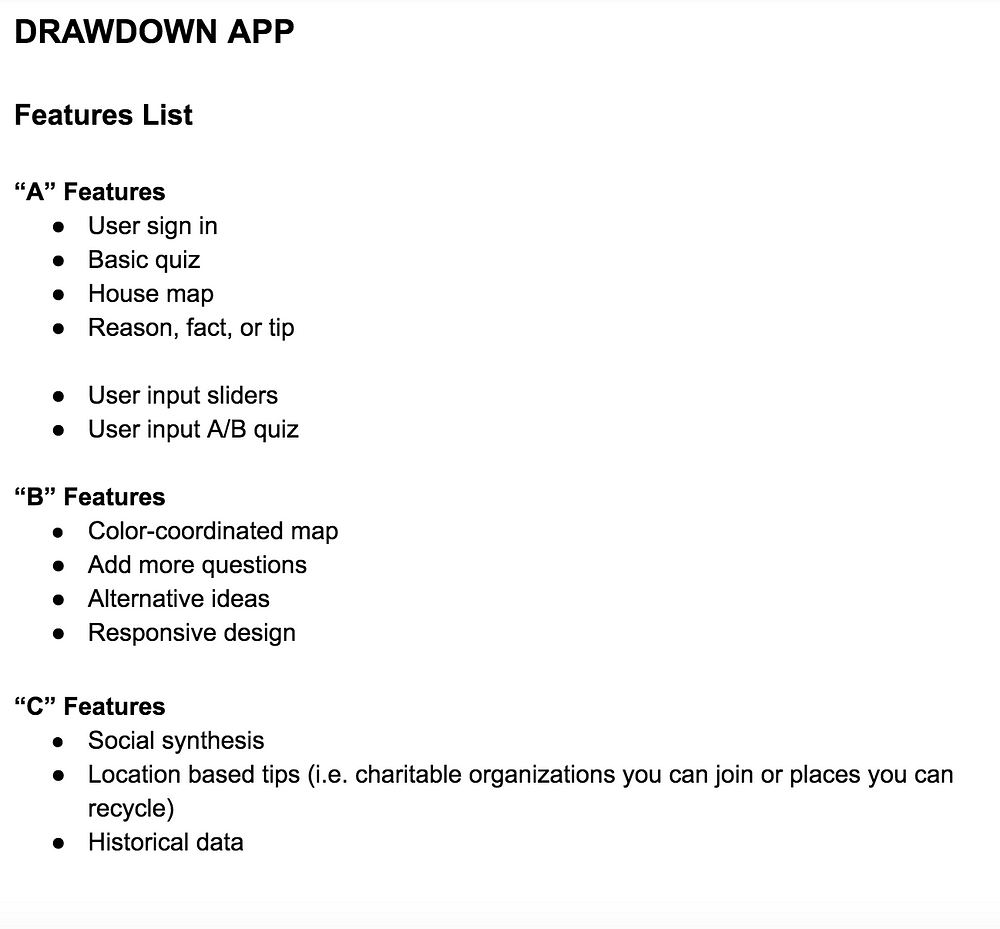
Day Two
Day two started early at 8 am and we kept working until 10 pm that evening. Not having any code that morning was stressing us all out, but we prioritized fleshing out our ideas on the whiteboard first.
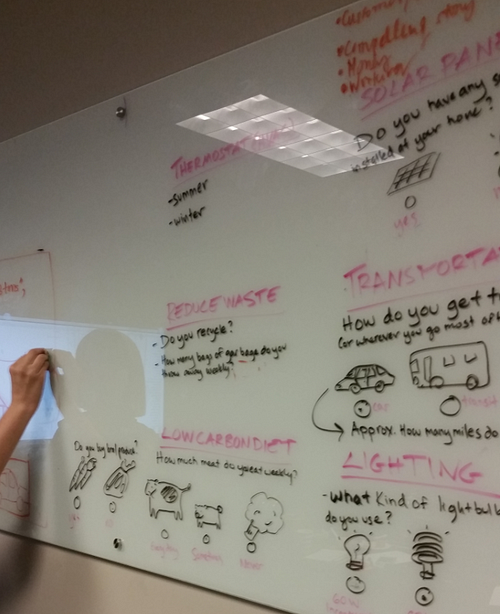
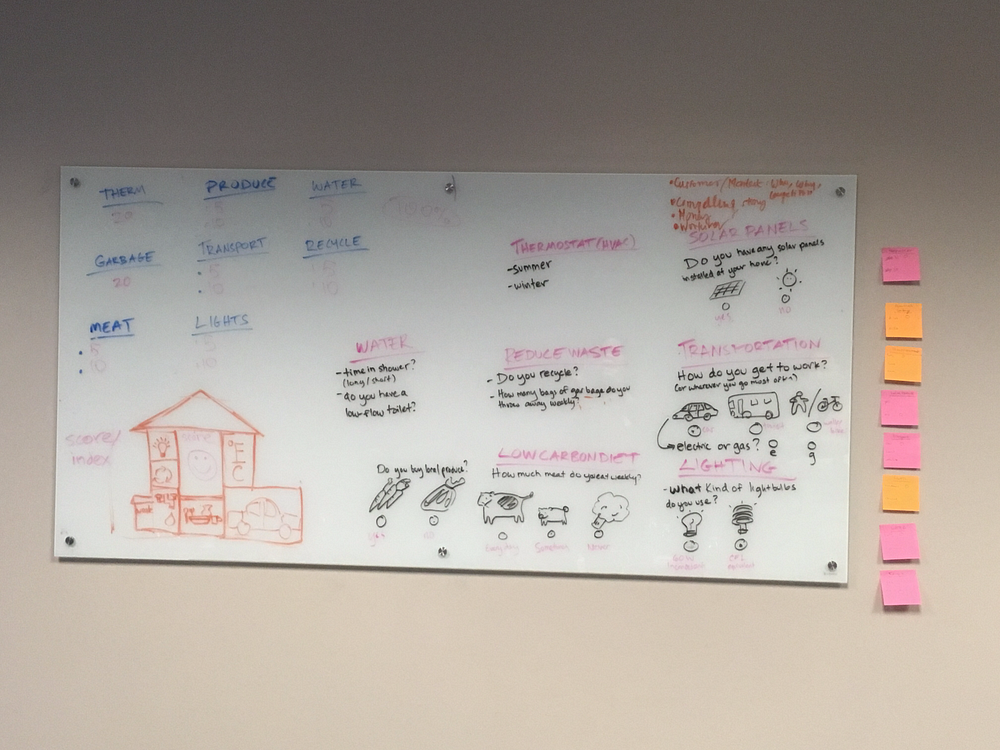
We decided to build a simple quiz that scores how much a person’s habits impact the environment. Then it offers tailored tips for reducing their environmental impact. At this point, we needed to figure out who would do what. I mentioned I knew how to code a quiz and store users’ inputs using jQuery and Google’s Firebase. Suddenly, that was my job!
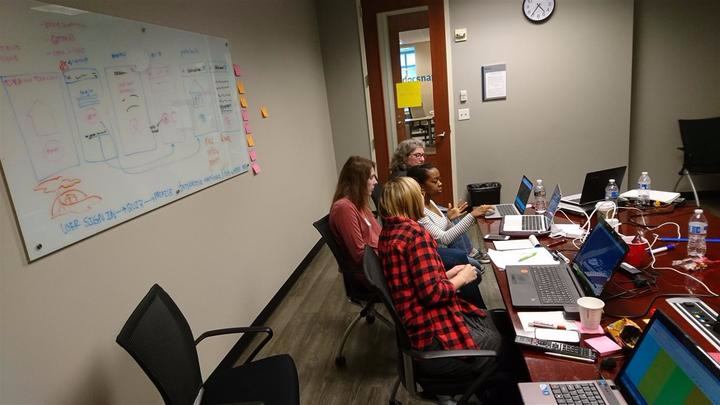
Each of us hit the ground running with a specific task and definitely ran into roadblocks along the way.
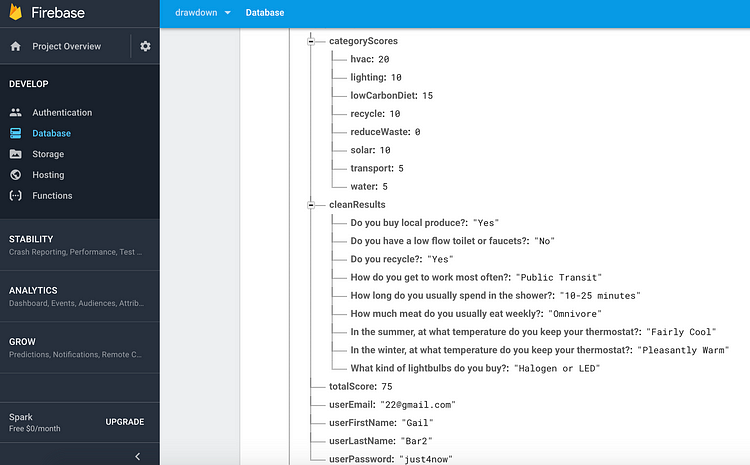
Although I had worked with Firebase for a class project before and the documentation is great, it was hard!
I had to figure out how to authenticate users with their email address and password, how to structure our database, and how to persist the user’s state throughout the quiz and different pages of our app.
Thankfully, Women Who Code had mentors available to help. The mentors got us unstuck many times. More importantly, they pushed us to come up with a business model that would sustain our app. They emphasized, don’t just build a thing, think about the bigger picture, the problem we’re going to solve and the specific audience who will gain value from what we’ve built.
Day 3: Presentation Day
We spent the first half of the final day putting everything together and deploying the finished product to GitHub pages. There were more hiccups along the way (some styling and merging challenges). We were still tinkering with our app just minutes before the presentation.
I’m still in awe of all we were able to accomplish together in such a short amount of time. We didn’t win first place, but we did win the hackathon’s Social Impact award!
Key takeaways
Don’t underestimate yourself. Also, it’s expected that you won’t have a perfect app, so just make sure your project is presentable and don’t panic if something doesn’t work. Hackathons are also a great space to network with other experienced people in tech and show them your skills/ability to work under pressure. Last but not least, share everything, from the tools you used to the struggles you faced, on social media.